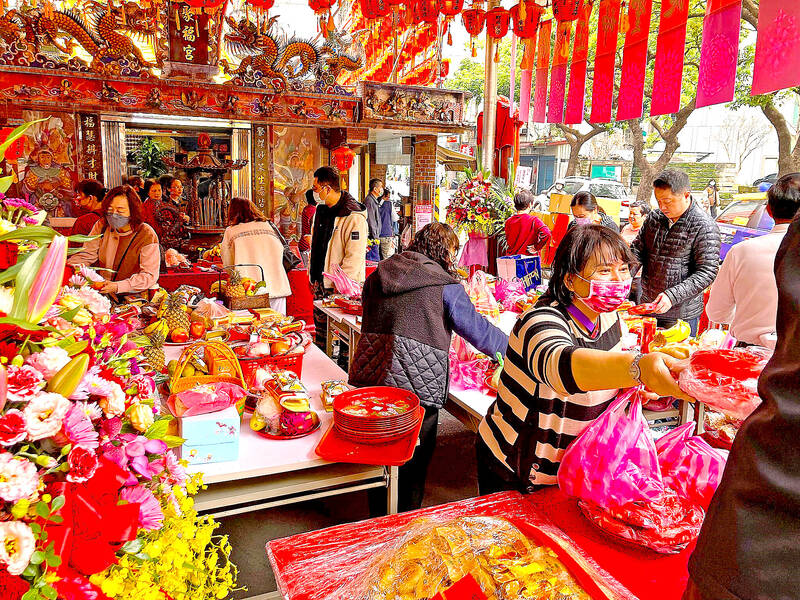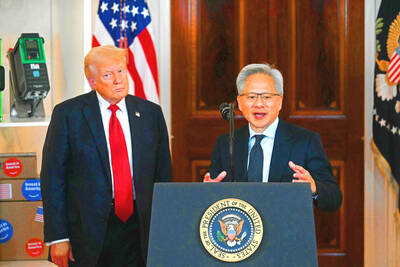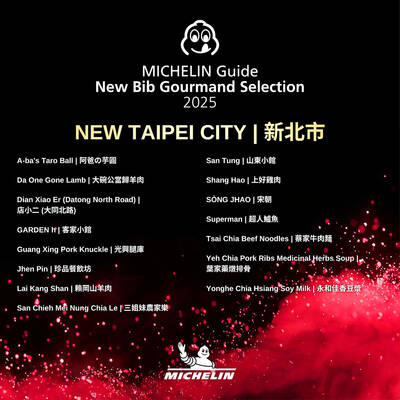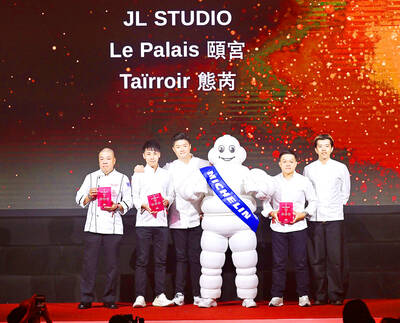對話 Dialogue
清清:你買這麼多吃的幹嘛?過年的都還沒吃完呢!
Qīngqing: Nǐ mǎi zhème duō chī de gànmá? Guònián de dōu háiméi chīwán ne!

Photo courtesy of Wikimedia Commons / 照片:Wikimedia Commons提供
華華:農曆二月初二是土地公的生日,也是「頭牙」,拜好土地公,才會好運到、發大財啊!
Huáhua: Nónglì èr yuè chūèr shì Tǔdìgōng de shēngrì, yěshì “tóuyá”', bàihǎo Tǔdìgōng, cái huì hǎoyùn dào, fā dàcái a!
清清:我都忘了!難怪你買了麻糬、發糕和糖果,聽說土地公愛吃甜的。
Qīngqing: Wǒ dōu wàngle! Nánguài nǐ mǎile máshǔ, fāgāo hàn tángguǒ, tīngshuō Tǔdìgōng ài chī tiánde.
華華:還有這個酒,可以拜米酒或是啤酒。不想拜酒,用花生湯、仙草蜜也可以。
Huáhua: Háiyǒu zhèige jiǔ, kěyǐ bài mǐjiǔ huòshì píjiǔ. Bùxiǎng bài jiǔ, yòng huāshēng tāng, xiāncǎomì yě kěyǐ
清清:還好土地公公是神明,吃這麼甜,不怕會得糖尿病。
Qīngqing: Háihǎo Tǔdìgōnggong shì shénmíng, chī zhème tián, búpà huì dé tángniàobìng.
華華:不要亂講話啦!不可以對神明不敬!
Huáhua: Búyào luàn jiǎnghuà la! Bù kěyǐ duì shénmíng bújìng!
清清:我還聽說土地公特別喜歡吃花生,你準備了沒有?
Qīngqing: Wǒ hái tīngshuō Tǔdìgōng tèbié xǐhuān chī huāshēng, nǐ zhǔnbèi le méiyǒu?
華華:當然啦!你看這一大包花生糖,保佑我這一年甜甜蜜蜜的好事一直發生喔!
Huáhua: Dāngrán la! Nǐ kàn zhè yí dà bāo huāshēng táng, bǎoyòu wǒ zhè yì nián tián tiánmìmì de hǎoshì yìzhí fāshēng ō!
翻譯 Translation
Qingqing: Why did you buy so much food? We haven’t finished the New Year’s food yet!
Huahua: The 2nd day of the 2nd lunar month is the Earth God’s birthday, also known as “Touya.” Honoring him brings good luck and prosperity.
Qingqing: I totally forgot. No wonder you bought mochi, steamed rice cake and candy. I heard the Earth God likes sweets.
Huahua: And this wine, you can use rice wine or beer for the offering. If you don’t want to use alcohol, peanut soup or grass jelly can work too.
Qingqing: Luckily, the Earth God is a deity, so eating all this sweetness doesn’t give him diabetes.
Huahua: Watch your mouth! You can’t be disrespectful to deities.
Qingqing: I also heard the Earth God especially likes peanuts. Did you prepare them?
Huahua: Of course. Look at this big bag of peanut candy—hoping for a sweet and lucky year.
生詞 Vocabulary
1. 土地公 (Tǔdìgōng) Earth God, God of the Land
2. 農曆 (nónglì) lunar calendar
3. 頭牙 (tóuyá) Head of the Year
4. 發糕 (fāgāo) steamed sponge cake (symbolizing prosperity and good luck)
5. 仙草蜜 (xiāncǎomì) grass jelly, herbal jelly
6. 神明 (shénmíng) deity, god or goodess
7. 糖尿病 (tángniàobìng) diabetes
8. 亂講話 (luàn jiǎnghuà) shoot off one’s mouth
教材音檔 Audio Files
國立清華大學華語中心提供
By National Tsing Hua University Chinese Language Center:

When Nvidia CEO Jensen Huang revealed on Friday last week that the company is working with the Trump administration on a new computer chip designed for sale to China, it marked the latest chapter in a long-running debate over how the US should compete with China’s technological ambitions. The reasoning has sometimes changed — with US officials citing national security, human rights or purely economic competition — but the tool has been the same: export controls, or the threat of them. Nvidia believes it can eventually reap US$50 billion from artificial intelligence (AI) chip sales in China. But it so far has

In 2024, multiple airplane accidents caused severe casualties, including a Jeju Air disaster at the year’s end. However, not all incidents ended in tragedy. Early in the year, a Japan Airlines flight caught fire after landing in Tokyo, but all 379 passengers and crew members escaped within 90 seconds. This event highlights the “golden 90 seconds” that experts emphasize — most survivors evacuate the plane within this critical window. Proper preparation ensures you can act quickly and decisively during these crucial moments when every second counts. Your survival strategy begins before takeoff. Wear long pants, a comfortable top, and

A: The Michelin Guide Taiwan announced the 2025 Bib Gourmand eateries and starred restaurants last week. B: What were the highlights this year? A: In addition to Taipei, Taichung, Tainan and Kaohsiung, New Taipei City and Hsinchu City and County were included for the first time. B: As a New Taipei resident, I can’t wait to try all the awarded local delicacies. Should we start from the more affordable Bib Gourmand selection? A: Sure, New Taipei and Hsinchu each boast 15 Bib Gourmand eateries now, including some famous establishments such as San Tung restaurant. A: 2025《米其林指南》近日公布「必比登推介」和星級餐廳。 B: 今年的名單有哪些亮點? A: 除了台北、台中、台南、高雄,今年加入新北、新竹縣市! B: 身為新北人,我真想吃遍當地的美食,我們要不要從平價的必比登先開始? A: 好啊新北、新竹各有15家入選必比登,像山東小館等知名餐廳都有上榜唷。 (By Eddy Chang, Taipei Times/台北時報張迪)

A: Seeing as the 2025 Michelin Guide extended to New Taipei City and Hsinchu City and County, it’s hard to believe that none of the restaurants won a Michelin star. B: Some fine establishments — like Hsinchu’s A Cut steakhouse — surely deserve the honor. A: Michelin-starred restaurants have good quality food, but some of them are so pricey. B: I once had barbeque pork at a starred restaurant that set me back NT$4,800. That’s even higher than my weekly food budget. A: No wonder several of them have closed down recently, as high prices and the tariff war are scaring off